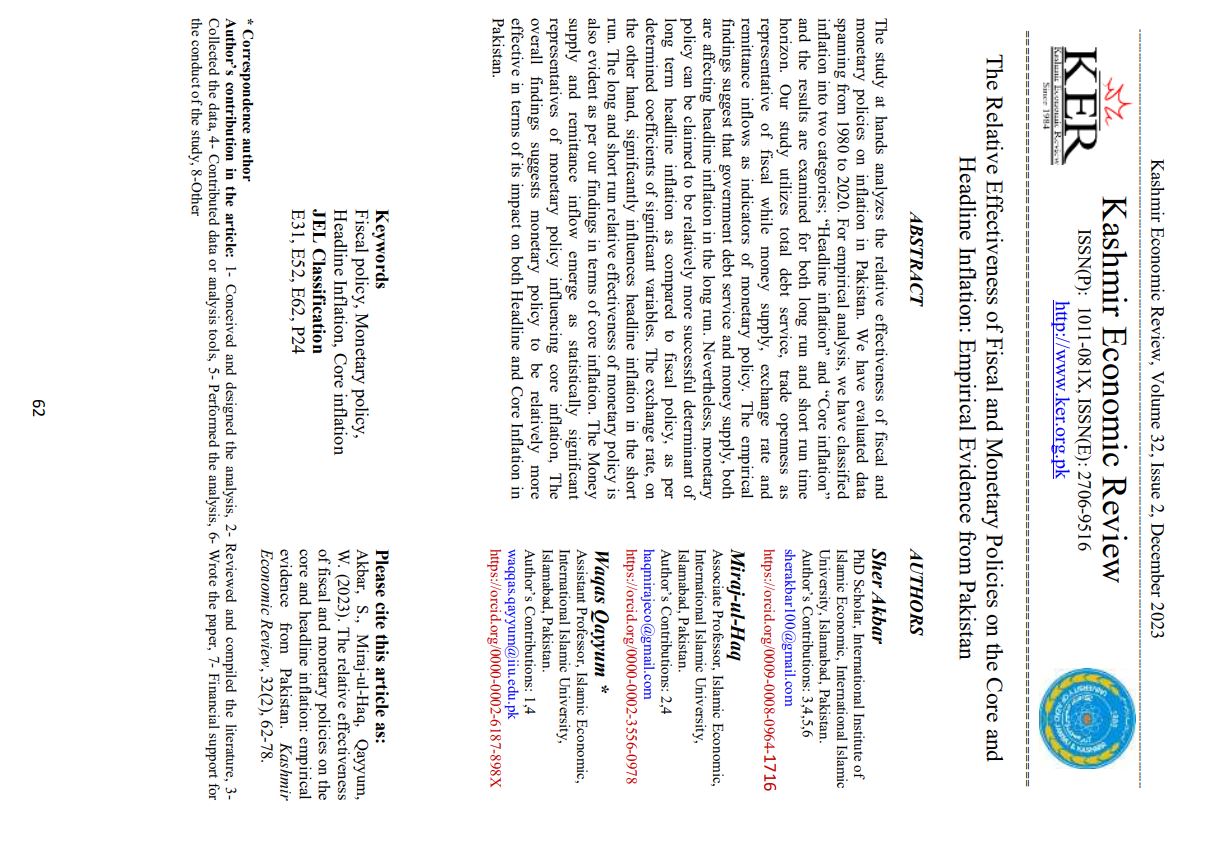The Relative Effectiveness of Monetary and Fiscal Policies on the Headline and Core Inflation: Empirical Evidence from Pakistan
محتوى المقالة الرئيسي
الملخص
The study at hands analyzes the relative effectiveness of fiscal and
monetary policies on inflation in Pakistan. We have evaluated data
spanning from 1980 to 2020. For empirical analysis, we have classified
inflation into two categories; “Headline inflation” and “Core inflation”
and the results are examined for both long run and short run time
horizon. Our study utilizes total debt service, trade openness as
representative of fiscal while money supply, exchange rate and
remittance inflows as indicators of monetary policy. The empirical
findings suggest that government debt service and money supply, both
are affecting headline inflation in the long run. Nevertheless, monetary
policy can be claimed to be relatively more successful determinant of
long term headline inflation as compared to fiscal policy, as per
determined coefficients of significant variables. The exchange rate, on
the other hand, significantly influences headline inflation in the short
run. The long and short run relative effectiveness of monetary policy is
also evident as per our findings in terms of core inflation. The Money
supply and remittance inflow emerge as statistically significant
representatives of monetary policy influencing core inflation, The
overall findings suggests monetary policy to be relatively more
effective in terms of its impact on both Headline and Core Inflation in
Pakistan.
تفاصيل المقالة

هذا العمل مرخص بموجب Creative Commons Attribution-ShareAlike 4.0 International License.

